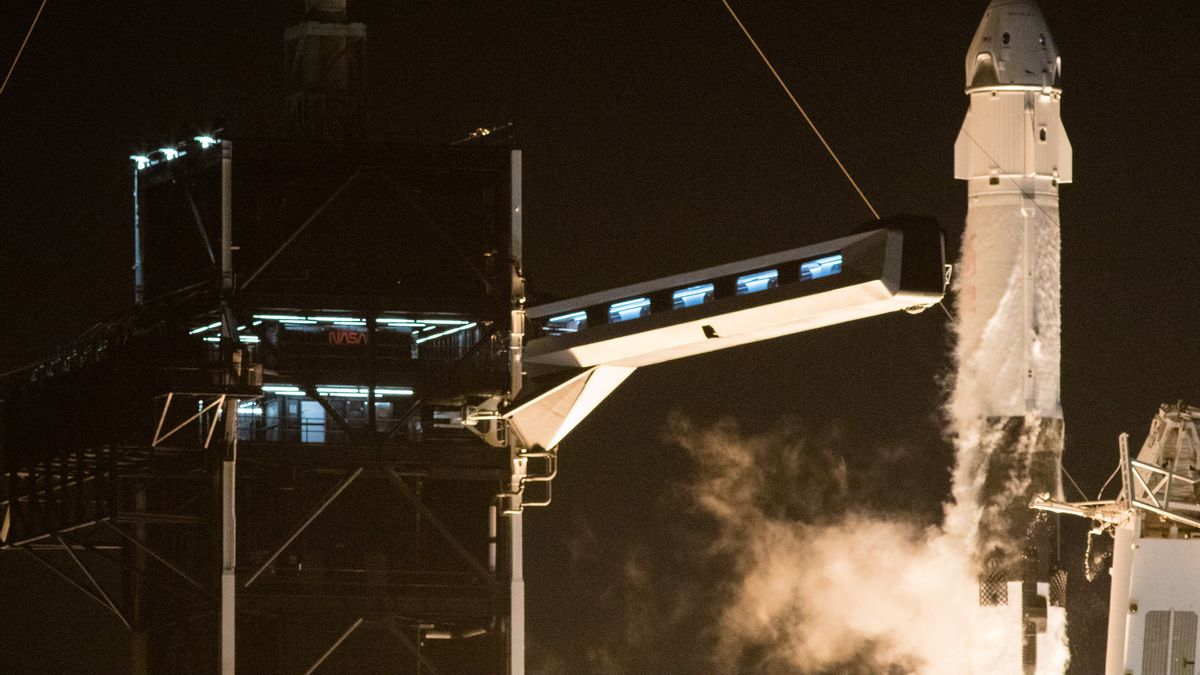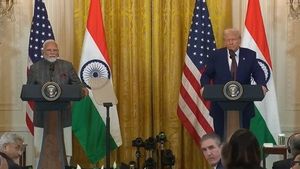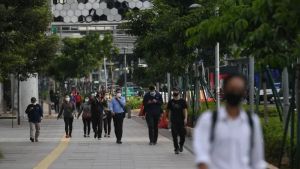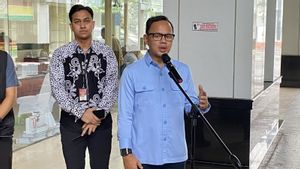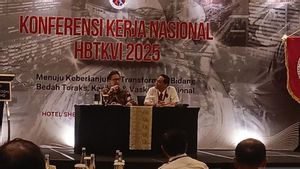JAKARTA - SpaceX has again successfully sent four NASA astronauts to the International Space Station or ISS. This will be the first operational mission to be fully controlled by a private company.
Launching the New York Times, SpaceX's Falcon 9 rocket successfully carried Crew-1 off into space. Rocket launched from Launch Complex 39A, Cape Canaveral, Florida.
Liftoff! pic.twitter.com/Unf1ScdVFB
- SpaceX (@SpaceX) November 16, 2020
The mission, named Crew-1, brought three NASA astronauts, namely Michael Hopkins, Victor Glover and Shannon Walker, and Japanese JAXA astronaut Soichi Noguchi. Although it was delayed for a day due to weather problems, the rocket was successfully launched at 19:49 local time or Monday 07.49 am in Indonesia.
"It's been an incredible journey. Resilence is now in orbit," said astronaut Michael Hopkins after taking off on Monday, November 16.
Resillence is the name of the space capsule that the four astronauts use to travel to the ISS. Later astronauts only need to wait 27 hours in trajectory orbit before arriving at the International Space Station.
After the docking process is complete, the four astronauts will begin work on the ISS and will remain on the space station until June. Where they will serve with NASA astronaut Kate Rubins and two Russian cosmonauts Sergey Ryzhikov and Sergey Kud-Sverchkov who first arrived at the ISS.
This is the second time SpaceX has delivered astronauts to the ISS. In May, Elon Musk's company embarked on its first manned mission and brought astronauts Bob Behnken and Doug Hurley as the first two humans to fly into orbit aboard a Falcon 9 rocket and a Crew Dragon capsule under NASA's Commercial Crew program.
Godspeed Crew-1! #LaunchAmerica pic.twitter.com/b2gazrSIze
- Jim Bridenstine (@JimBridenstine) November 15, 2020
"For the first time in history, there is the commercial capability of a private sector entity to transport people into space safely and reliably," said NASA director of commercial spaceflight development Phil McAlister.
NASA and SpaceX themselves have completed the certification process, to regularly bring NASA astronauts into orbit. In the future, it is not impossible that a ticket to travel to space will be popular because it can be done entirely by private parties.
The English, Chinese, Japanese, Arabic, and French versions are automatically generated by the AI. So there may still be inaccuracies in translating, please always see Indonesian as our main language. (system supported by DigitalSiber.id)
